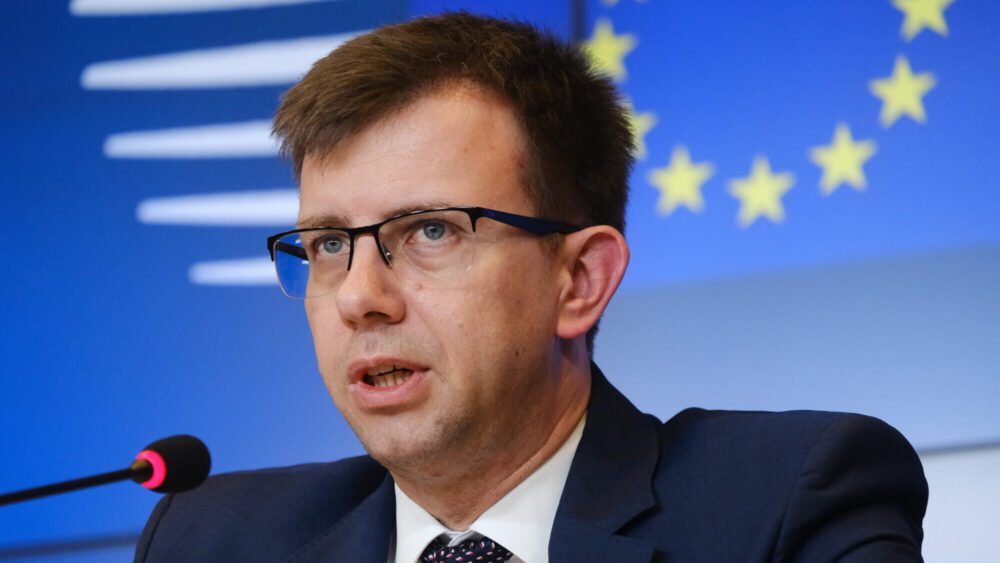
Hungarian EU Affairs Minister János Bóka
Photo: European Council
The European Union permanently revoked €1.04 billion of previously frozen cohesion funds earmarked for Hungary as the deadline for accessing the money ended on December 31st. This is the first time this has ever happened in EU history, but Hungary vows to keep fighting what it sees as an unfair and purely political decision.
The sum was part of the around €31 billion of EU cohesion funds and pandemic recovery assistance that Brussels previously froze due to Hungary’s alleged rule-of-law violations. The accusations include “mistreatment” of illegal migrants by keeping them outside the country while asylum applications are processed; a child protection law interpreted by Brussels as discriminatory against the LGBT community; and an alleged lack of judicial independence and appropriate anti-corruption frameworks.
In general, Budapest regards this as a tactic of “ideological blackmail,” meant to pressure the country into adopting more leftist policies or turn cash-strapped voters against the ruling party and achieve a change of government with the promise of accessing the funds.
This latter scenario is what happened in Poland, as Brussels unlocked its €110 billion frozen funds almost immediately after Donald Tusk’s liberal coalition defeated the conservative PiS—despite the new government not introducing a single reform.
Budapest so far has unlocked a third of the frozen funds by implementing widespread reforms in its judicial system, but it still remains locked out of accessing around €19 billion.
This tranche of €1 billion, which expired at the end of 2024, was tied to a set of 17 specific anti-corruption reforms. The EU Commission commended Hungary’s progress in this area in early 2023, but then it suddenly deemed them insufficient when Budapest presented the complete reforms in December of that year.
Last month, when Hungary’s EU Affairs Minister János Bóka met with the bloc’s new Budget Commissioner Piotr Serafin—who was nominated by Tusk’s Polish left-liberal government—the latter maintained the previous assessment and simply said the reforms were still “not quite what we were hoping for.”
Hungary, however, insists that it has cleared all requirements and that the funds are being withheld only for political reasons.
“The Hungarian government has met all conditions required to access all EU funds,” Bóka wrote on X on Tuesday. “Brussels wants to take away the funds that Hungary and the Hungarian people are entitled to because of its political agenda.”
At the same time, the minister said this doesn’t mean that those funds are permanently lost, and the country will keep fighting for what rightfully belongs to the country. “Hungary will not lose a single euro cent as long as it has a patriotic and sovereign government.”
He added that €12 billion of the initially frozen funds have already been unlocked thanks to previous reforms and that Hungary was among the “most advanced” member states in terms of successful disbursement of cohesion and recovery funds. True, Hungary ranked 11th out of 27 last month, even though it became a net contributor to the EU in 2024—by paying €725 million more into the EU budget than it received—due to the frozen funds.
“Hungary will use all legal and political tools at its disposal to gain access to the remainder of its EU funds,” Bóka promised.
The Hungarian government has met all conditions required to access all EU funds.
— Bóka János (@JanosBoka_HU) December 31, 2024
Brussels wants to take away the funds that Hungary and the Hungarian people are entitled to because of its political agenda. But Hungary will not lose a single euro cent as long as it has a… pic.twitter.com/nXxsFWpEr3
